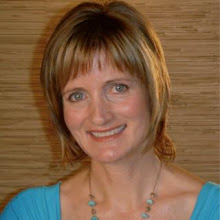You Call That Normal?
Invest In Your Immunity With This Simple Tip
Last week an old friend of mine and I spoke on the phone. I asked her how she was doing and her response was this: "Well, I am still totally stressed out and get those headaches and am running around a mile a minute, so I feel completely drained. You know, the normal stuff."
 I paused and thought to myself that there is nothing normal about getting headaches and feeling drained to the max! However, we have become so accustomed to running our lives at a high impact level that we have fooled ourselves into believing this is "normal". Meanwhile, it appears her body is giving her clear signals that it needs attention in order to function more efficiently.
I paused and thought to myself that there is nothing normal about getting headaches and feeling drained to the max! However, we have become so accustomed to running our lives at a high impact level that we have fooled ourselves into believing this is "normal". Meanwhile, it appears her body is giving her clear signals that it needs attention in order to function more efficiently.
Basically, here's what is happening. Her body is getting the signal from her heart that there is danger.
Where does this come from?
The emotion she feels. The emotion of perhaps frustration, fear, anxiety, panic... or whatever is going on with her.
So, her heart says to her body, "Danger, danger!" And the immune system jumps into action saying, "We will take care of that. We are not safe. We must fight, fight!" This sure does sound exhausting to me already.
See, the heart does not distinguish the source of the emotion of panic or fear. So, feeling panic and fear could be coming from being chased by a black bear OR your blackberry! The signal is the same to the body to go take action. Quite useful if being chased by a black bear. Not so useful when "being chased" by your blackberry on a daily basis. Imagine what that is continuously doing to your immune system. Not so great. Now we are understanding more about those headaches and seriously drained feeling.
The good news is this: Our heart gives us a way to manage stress on the spot.
And remember, stress is not, for the most part, a circumstance, but our internal response to a situation, so we have a choice.
So, next time you can catch yourself going into panic or anxiety mode, try this:
With love,
Sahara
Stay tuned to find out more about my proven strategies to understanding stress from a physiological perspective and learn to truly improve your body's state of health and your relationships. And no surprise to anyone who knows me... yes this directly involves the heart. But when doesn't it?
 I paused and thought to myself that there is nothing normal about getting headaches and feeling drained to the max! However, we have become so accustomed to running our lives at a high impact level that we have fooled ourselves into believing this is "normal". Meanwhile, it appears her body is giving her clear signals that it needs attention in order to function more efficiently.
I paused and thought to myself that there is nothing normal about getting headaches and feeling drained to the max! However, we have become so accustomed to running our lives at a high impact level that we have fooled ourselves into believing this is "normal". Meanwhile, it appears her body is giving her clear signals that it needs attention in order to function more efficiently.Basically, here's what is happening. Her body is getting the signal from her heart that there is danger.
Where does this come from?
The emotion she feels. The emotion of perhaps frustration, fear, anxiety, panic... or whatever is going on with her.
So, her heart says to her body, "Danger, danger!" And the immune system jumps into action saying, "We will take care of that. We are not safe. We must fight, fight!" This sure does sound exhausting to me already.
See, the heart does not distinguish the source of the emotion of panic or fear. So, feeling panic and fear could be coming from being chased by a black bear OR your blackberry! The signal is the same to the body to go take action. Quite useful if being chased by a black bear. Not so useful when "being chased" by your blackberry on a daily basis. Imagine what that is continuously doing to your immune system. Not so great. Now we are understanding more about those headaches and seriously drained feeling.
The good news is this: Our heart gives us a way to manage stress on the spot.
And remember, stress is not, for the most part, a circumstance, but our internal response to a situation, so we have a choice.
So, next time you can catch yourself going into panic or anxiety mode, try this:
- Focus on the area in and around your heart.
- Breathe an even inhale and exhale through that heart space... as if the heart was breathing. Sometimes it is easiest to count to 6 or 8 on each inhale and exhale to create an even pattern.
- Stay in that space for 2-3 minutes.
- Check in with how you feel.
- Chances are that you have neutralized that feeling, even if only momentarily.
With love,
Sahara
Stay tuned to find out more about my proven strategies to understanding stress from a physiological perspective and learn to truly improve your body's state of health and your relationships. And no surprise to anyone who knows me... yes this directly involves the heart. But when doesn't it?


 "Red is my color," I used to say. Just because I liked it best, I owned it.
"Red is my color," I used to say. Just because I liked it best, I owned it.




